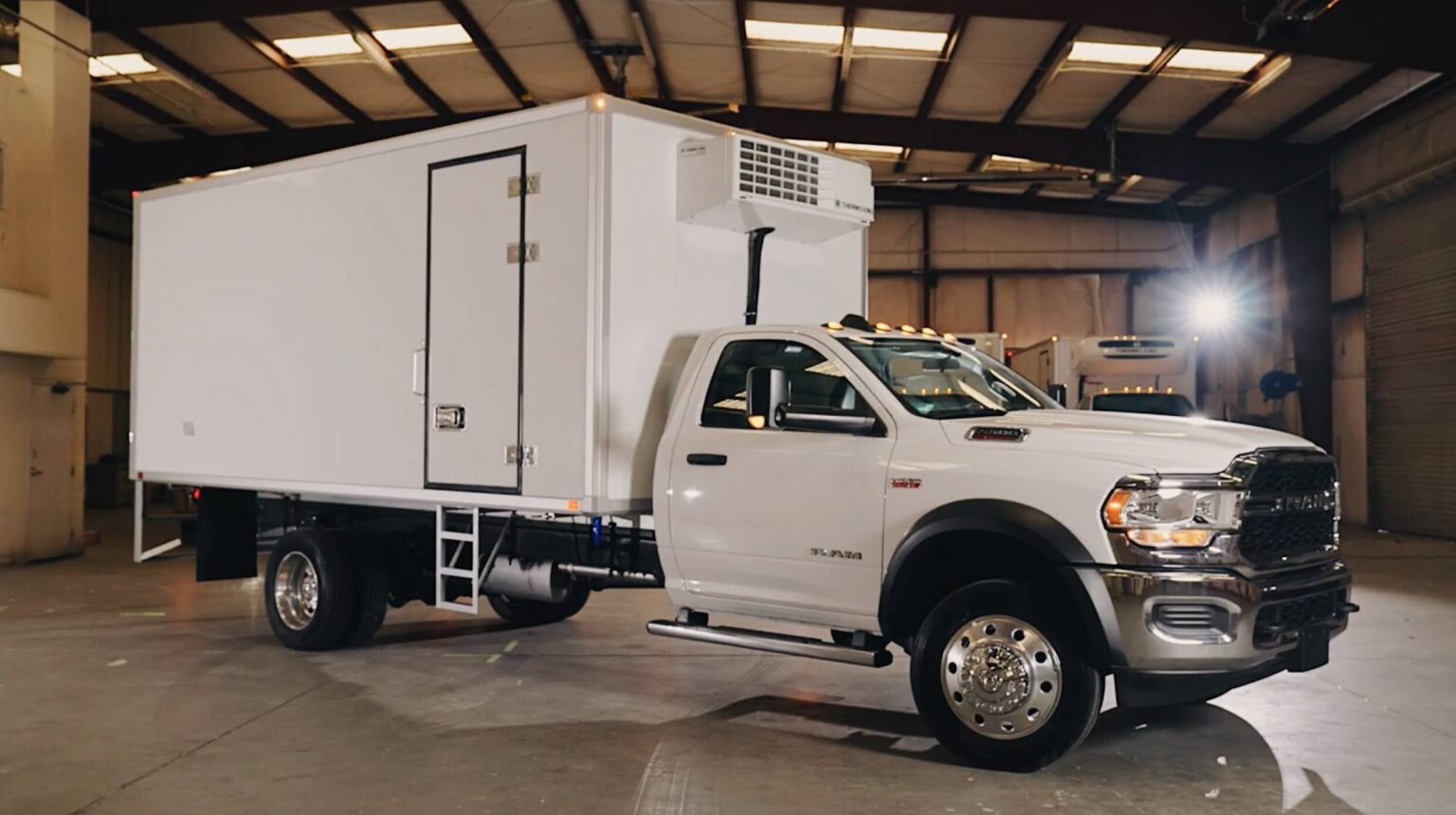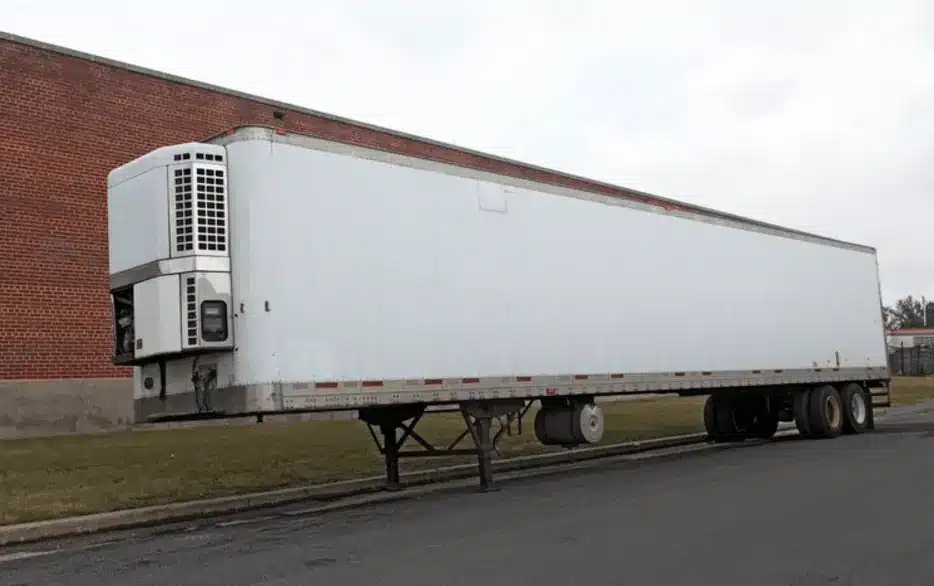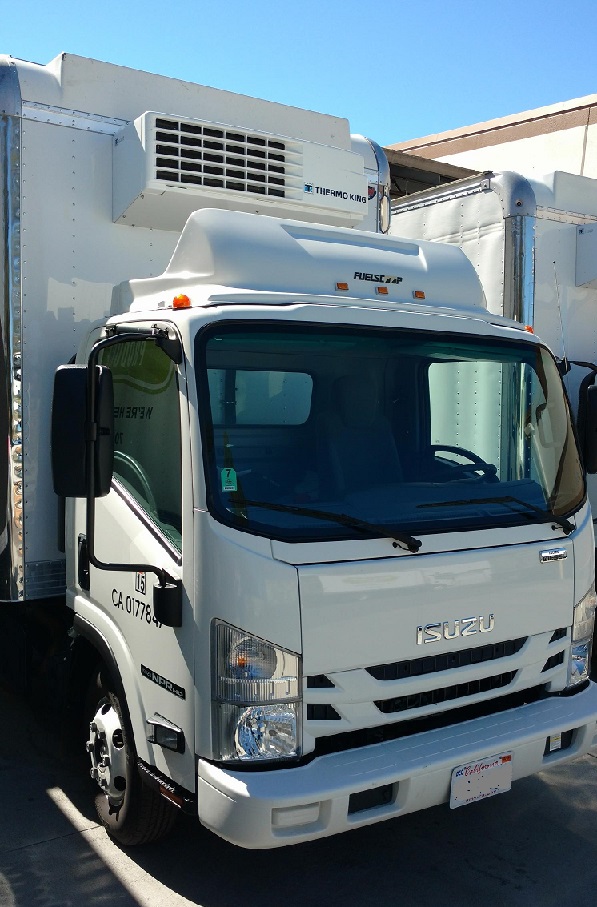Advanced Thermo King Truck Refrigeration Units for Reliable Shipment
Advanced Thermo King Truck Refrigeration Units for Reliable Shipment
Blog Article
Leading Technologies in Transport Refrigeration: Enhancing Effectiveness and Security
The landscape of transport refrigeration is undertaking considerable change, driven by advancements targeted at enhancing both efficiency and safety and security. Key advancements such as clever temperature level monitoring systems, green refrigerants, and automated path optimization are crucial in resolving the sector's obstacles. These technologies not only guarantee the stability of temperature-sensitive products but additionally add to sustainability efforts. As these advancements remain to evolve, it is important to explore their effects on operational methods and governing compliance, prompting a better examination of just how they reshape the future of transport refrigeration.
Smart Temperature Level Keeping Track Of Systems
In the realm of transportation refrigeration, smart temperature tracking systems have actually become a critical technology for making sure the stability of temperature-sensitive goods. These sophisticated systems take advantage of Web of Things (IoT) modern technology to offer real-time information on temperature fluctuations, allowing drivers to preserve optimal problems throughout the supply chain. By continually tracking the temperature of cooled containers and cars, firms can quickly determine variances that may compromise product top quality.

Moreover, clever tracking systems often incorporate automated alerts and alerts, permitting stakeholders to react promptly to any prospective concerns. This aggressive approach not only lessens the threat of putridity however additionally boosts compliance with regulative criteria controling food safety and pharmaceutical transport.
The integration of data analytics within these systems likewise assists in anticipating maintenance, helping drivers to anticipate potential tools failures prior to they occur. This ability minimizes downtime and maximizes operational effectiveness, eventually causing set you back savings.
Eco-Friendly Refrigerants
Smart temperature monitoring systems play a crucial duty in maintaining product top quality, yet the performance of transport refrigeration additionally rests on the selection of cooling agents made use of. As environmental worries rise, the change in the direction of environment-friendly refrigerants has become essential. Traditional cooling agents, such as hydrofluorocarbons (HFCs), are infamous for their high International Warming Possible (GWP), contributing significantly to environment modification. In comparison, emerging alternatives like hydrocarbon-based refrigerants and hydrofluoroolefins (HFOs) present lower GWP alternatives, using both performance and sustainability.
These environmentally friendly refrigerants not just decrease ecological influence yet also straighten with worldwide regulations aimed at eliminating dangerous substances. Their fostering can bring about boosted energy efficiency, ultimately lowering operating expenses for transport refrigeration systems. The use of natural refrigerants, such as ammonia and carbon dioxide, has actually gained traction due to their excellent thermodynamic properties and reduced ecological footprint.
Buying green refrigerants is not simply a regulative compliance step; it represents a tactical decision that enhances brand credibility and promotes customer commitment. reefer trucks thermo king. By focusing on lasting methods, business can add to a greener future while ensuring the integrity of carried items
Advanced Insulation Products
Using advanced insulation materials is important for maximizing transport refrigeration systems, as they significantly boost energy effectiveness and maintain constant temperature level control. Typical insulation techniques often fall short in avoiding thermal transfer, bring about raised energy usage and varying temperatures within refrigerated areas.
Emerging materials such as vacuum read this cleaner insulated panels (VIPs) and aerogels provide premium thermal resistance, permitting thinner profiles without compromising performance. VIPs, for instance, utilize a vacuum cleaner layer to decrease convective and conductive heat transfer, making them ideal for space-constrained applications. Aerogels, known for their porous and light-weight framework, supply remarkable insulation while considerably lowering total system weight.
Furthermore, incorporating stage change materials (PCMs) right into insulation systems can better maintain temperatures throughout transit. These products take in and release thermal power, successfully buffering versus exterior temperature level variants.
The combination of these innovative insulation products not only minimizes the operational costs related to power usage yet likewise expands the shelf life of temperature-sensitive products. As the transport refrigeration sector remains to evolve, the adoption of innovative insulation innovations will be pivotal in boosting both performance and visit this web-site safety in refrigerated transportation.
Automated Course Optimization
The effectiveness of transportation refrigeration systems is considerably improved with automated course optimization, which leverages real-time information and innovative algorithms to figure out one of the most reliable courses for delivery. By evaluating numerous elements such as traffic patterns, weather, and distribution home windows, these systems can dramatically lower traveling time and gas intake.
Automated path optimization decreases human error and subjective decision-making, which can lead to inefficiencies. This technology allows fleet managers to allocate resources better, making certain that chilled goods keep their needed temperature throughout the journey. By enhancing courses, companies can likewise improve client fulfillment with timely shipments.
Furthermore, automated systems can adjust to unforeseen situations, such as roadway closures or abrupt website traffic spikes, enabling dynamic rerouting. This versatility not only safeguards the stability of temperature-sensitive items yet additionally adds to general operational effectiveness.
Implementing automated route optimization can lead to significant price savings while decreasing the carbon impact associated with transportation. As businesses significantly prioritize sustainability, this innovation attracts attention as an important part in modern-day transport refrigeration, straightening operational goals with ecological obligation. Eventually, automated path optimization stands for a considerable development in the quest for efficiency and safety in transportation refrigeration.

Real-Time Data Analytics
Automated route optimization considerably gain from the integration of real-time information analytics, which supplies critical understandings right into the performance of transportation refrigeration systems. By using real-time information, transportation drivers can monitor temperature fluctuations and tools efficiency, ensuring that disposable products are maintained within required criteria throughout transportation. This positive technique not only boosts the high quality of the moved products however also mitigates the risk of spoilage and loss.

Along with enhancing performance, real-time analytics improves security by ensuring conformity with governing requirements for temperature level control. This not only safeguards public wellness however additionally fortifies a business's reputation - reefer trucks thermo king. As the transport refrigeration industry progresses, the combination of real-time information analytics emerges as a cornerstone for driving advancement, sustainability, and functional quality
Conclusion
In conclusion, the innovations in transport refrigeration substantially improve both effectiveness and safety and security within the sector. Collectively, these technologies stand for an essential development in transportation refrigeration, ensuring compliance with regulative criteria and promoting a greener future.
The landscape of transportation refrigeration is undertaking significant change, driven by technologies aimed at enhancing both efficiency and safety.Smart temperature monitoring systems play an essential role in maintaining item quality, yet the effectiveness of transportation refrigeration also hinges on the option of cooling agents made use of. Their adoption can lead to enhanced energy performance, ultimately minimizing operating prices for transport refrigeration systems. Eventually, automated route optimization stands for a significant advancement in the quest for effectiveness and safety in transport refrigeration.
In verdict, the innovations in transport refrigeration dramatically improve both effectiveness and safety within the industry.
Report this page